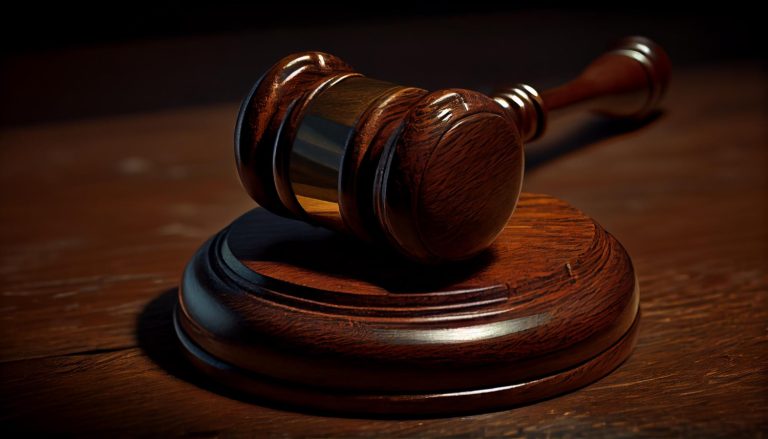If you’re in Texas and thinking about not paying child support, you might be wondering what the consequences are. At MenduniMartindill, we are experienced divorce lawyers who have seen firsthand the significant legal and personal ramifications that can come from missing payments. Ignoring child support obligations isn’t just a financial issue—it can affect your freedom and future opportunities. In this article, we’ll share what really happens when you don’t pay child support in Texas, and why it’s crucial to stay compliant.
From the point of view of Texas law, if you don’t pay child support, the court can hold you in contempt, suspend your driver’s license, and issue a warrant for your arrest. Also, your wages may be garnished to cover the payments. This information comes from the Texas Attorney General’s website.
Consequences of Unpaid Child Support
Unpaid child support can lead to severe legal penalties for the parent and financial instability for the child.
If a parent doesn’t pay child support, they could face legal consequences like having their wages taken, losing their driver’s license, or even going to jail. This can make their financial situation worse and affect their well-being.
For the child, not getting child support can cause financial problems. They might not have enough money for basic needs like food, clothes, and healthcare. Feeling abandoned or ignored by the parent who isn’t paying can also harm the child’s mental health and well-being.
Not paying child support can also lead to fights and tension between the parents and strain the family relationships. It can make the child feel less important or valued if one parent isn’t providing the needed support.
Not paying child support can seriously harm both the parent and the child. It’s very important for parents to meet their responsibilities and care for their children’s needs.
Legal Actions for Non-Payment
Legal actions for non-payment often begin with a demand letter, which serves as a formal warning of potential legal repercussions if the debt remains unpaid.
If the payment is still not received, the next step is to take the matter to court to get a judgment for the money owed. The court might rule in favor of the creditor and order the debtor to pay what is owed, possibly with extra charges or interest.
If the debtor still doesn’t pay, the creditor can take further actions like taking money from the debtor’s wages, bank account, or putting a claim on their property. In extreme cases, the debtor could face jail time. It’s important to follow all legal steps and meet deadlines to have the best chance of getting the unpaid money back.
Financial Penalties Explained
Financial penalties financially punish rule-breakers to enforce compliance and maintain order.
Penalties are punishments you can get for breaking rules, not honoring agreements, or not paying what you owe. They are designed to stop people from doing wrong things again and to make sure they follow the rules. The amount of money you might have to pay can vary based on how serious your wrongdoing is.
These fines can be given by government agencies, courts, or private groups. Penalties can come in the form of fines, fees, or payments to fix the damage you’ve done. If you don’t pay these penalties, you might face extra costs like interest, collection efforts, or even legal trouble. It’s important to understand these penalties to avoid any more problems.
Loss of Professional Licenses
Losing a professional license can abruptly end your career in that field.
Losing your license can happen if you don’t follow rules, act carelessly, or fail to meet requirements. This can seriously affect your ability to work and earn money. It can also hurt your reputation and make it hard to get another job in the same field. To avoid losing your license, follow all rules and ethical guidelines, stay updated on changes in your industry, and ask for help if needed.
Understand the impact of losing your license and take steps to protect your career. If you do lose your license, there are ways to appeal or get it back, but the process can be difficult and take a long time. Losing your license can have many negative effects, so it’s important to take measures to prevent it.
Impact on Credit Score
Paying bills on time, keeping low credit card balances, and limiting new accounts significantly boost your credit score.
If you miss payments, max out your credit cards, or apply for a lot of credit accounts in a short time, it can harm your credit score.
Lenders look at your credit score to decide if you’re reliable and likely to repay money you borrow. A higher credit score means you are less risky to lenders, so it’s easier for you to get loans or credit cards with good terms.
A lower credit score, however, can lead to higher interest rates or being denied credit. It’s important to keep an eye on your credit report for mistakes and work to improve your credit score if needed.
This can include fixing errors, paying off debt, and having good credit habits. A strong credit score can lead to better financial opportunities and savings over time.

The Final Thoughts
In Texas, failing to pay child support can lead to serious consequences. These may include wage garnishment, suspension of driver’s licenses, property liens, and even jail time.
What MenduniMartindill is highlighting the need for is, it is very important for parents to fulfill their financial obligations to ensure the well-being of their children and avoid legal penalties.
References
- “Child Support Guidelines: Interpretation and Application” by American Bar Association, American Bar Association, Debra A. Hope
- “Child Support Handbook 2019/20” by Child Poverty Action Group, Child Poverty Action Group, Penny Letts
- “Child Support for the Non-Custodial Parent: Washington State Edition” by Rank Heath, Independently published, Rank Heath






